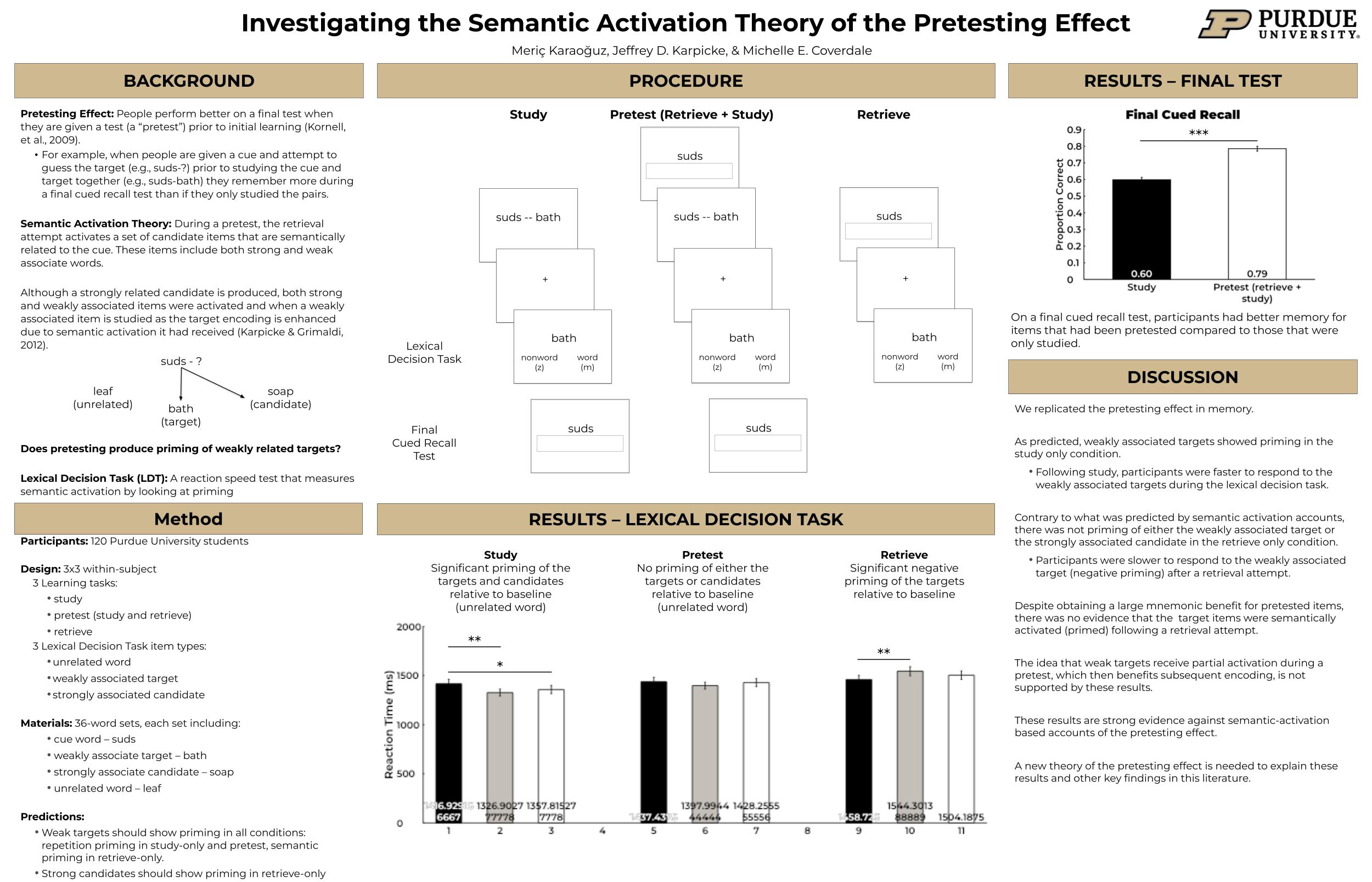Investigating the Semantic Activation Theory of the Pretesting Effect
- Objective: Explore the semantic activation theory of the pretesting effect
- Process: Three semester long iterative process with the department head of Psychology at Purdue University including ideation, coding, research, and preparation of a poster to be presented as well as a thesis paper.
- What I learned: The pretesting effect refers to a phenomena in which individuals who are provided with a cue word and attempt to guess the target prior to studying them both have better memory at a final test compared to individuals who study them. Semantic activation theory is one possible explanation that states semantically related words, even when weakly related, improve encoding. While the pretesting effect was replicated in my experiment, semantic priming was not observed after a pretest; challenging the semantic activation theory for pretesting.
